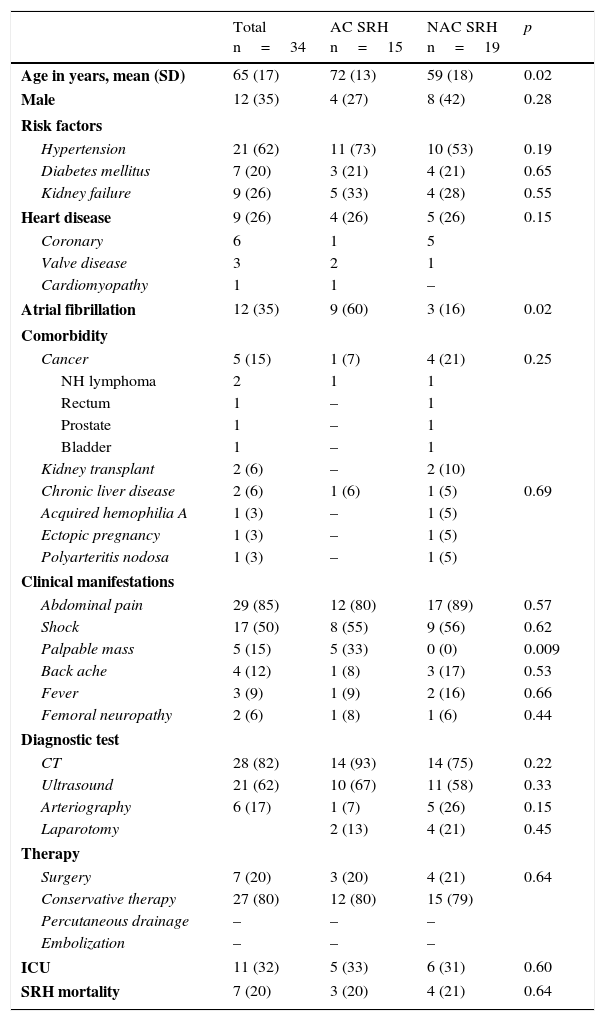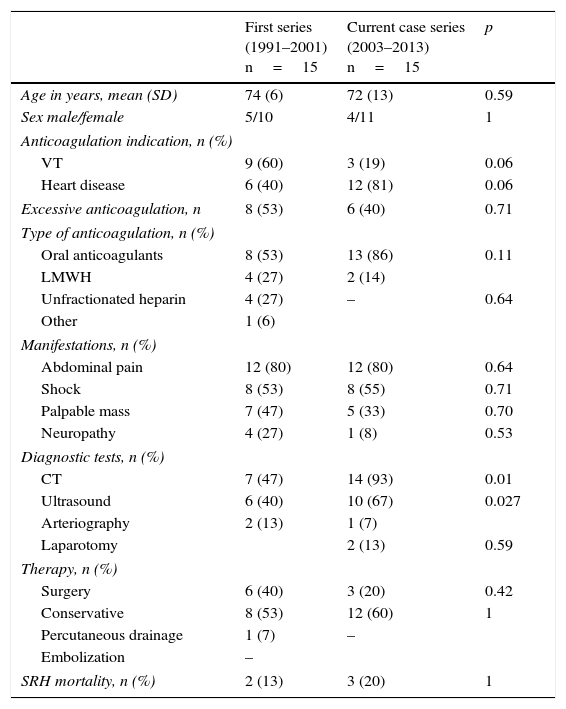Spontaneous retroperitoneal hematoma (SRH) is a potentially fatal clinical entity requiring immediate recognition and intervention.
Material and methodsThe clinical records of 18-year-old and older patients admitted to the University Hospital Marqués de Valdecilla from 2003 to 2013 were reviewed. “Spontaneous” was defined as unrelated to trauma, invasive procedures or bleeding due to aortic aneurysm rupture.
ResultsThirty-four patients with SRH (44% were on anticoagulant drugs). One-third of cases had chronic renal insufficiency. Abdominal pain was the most common symptom both in anticoagulated and non-anticoagulated patients (80% in anticoagulated and 89% in non-anticoagulated patients). About one half of the patients developed shock. A CT scan was the most commonly performed diagnostic test, followed by abdominal ultrasound. Most cases were managed conservatively (80%). More than half of the patients (66%) restarted anticoagulation therapy after the acute event with a mean delay of 19 days (range 2–90 days). None of them suffered a new bleeding episode.
ConclusionRestarting the anticoagulation treatment after hematoma resolution seems to be a safe practice. There is an increasing frequency of SRH in non-anticoagulated patients.
Los hematomas retroperitoneales espontáneos (HRE)son una complicación del tratamiento anticoagulante.
Material y métodosRevisión retrospectiva de los HRE en el Hospital Universitario Marqués de Valdecilla (Santander, España) desde el año 2003 al 2013. Se excluyen los traumatismos, los procedimientos invasivos o las roturas de un aneurisma aórtico. Comparamos esta serie con la descrita previamente en nuestro hospital.
ResultadosIdentificamos 34 HRE (64% mujeres) con una media de edad de 65 años (23-88 años). El 44% estaban anticoagulados por enfermedad cardiaca (81%). Un tercio tenía insuficiencia renal, y el 15%, cáncer. El dolor abdominal se describe en el 85%. La TC se realiza en el 82%. El 32% ingresa en UCI y solo el 20% requiere cirugía. La mortalidad relacionada fue del 21% (media de supervivencia de 5 días; 1-15 días). El 66% reinicia la anticoagulación a los 19 días (2-90 días), sin complicaciones posteriores. Se incrementan los casos no anticoagulados en un 47%.
ConclusiónEn los casos anticoagulados, la reintroducción del tratamiento, tras la resolución del hematoma, parece una práctica relativamente segura. Se incrementan los casos en pacientes no anticoagulados.










